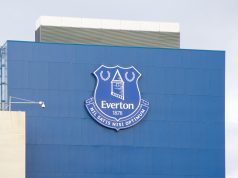Mohamed Salah may be one of the world’s biggest football stars, an icon for Liverpool and a Premier League legend at this point, but it seems all that can’t stop him sometimes being treated poorly.
That’s at least according to teammate Ibrahima Konate, via RMC Sport, who has revealed a disappointing story of discrimination suffered by the Liverpool forward during a trip to France.
Konate has been speaking to So Foot about his career to date and the pride he feels being where he is given the upbringing he had.
He insists he wants to be seen as a leader and a good role model for club and country, taking inspiration from Sergio Ramos, who once insisted he was the first and last person at the training ground every day.
The Liverpool defender is enjoying a new found status of late, having established himself at Anfield alongside Virgil van Dijk and in the France team under Didier Deschamps.
That’s led to increased coverage and attention, particularly in France, where members of the national team are rarely out of the spotlight or given an easy time of things.
Konate is aware of that, but the Liverpool man admits it can be hard to remain an example, citing an incident with Salah as an example of discrimination similar to what he himself has experienced.
“Playing for the French team does not prevent me from experiencing a few more mishaps,” he said.
“At the airport, for example, when I return to Liverpool, I take my business ticket to be in front and pass more quickly.
“When I arrive at Charles-de-Gaulle, the person hasn’t even seen my ticket yet and directs me to the other line. What’s the message behind that? It’s just a person like me has no place in business.
“One day, he (Salah) came to Paris, and at the airport, people didn’t know who he was. In a store, the employees spoke to him in a… let’s say discriminatory tone.
“Mohamed Salah, he is an extremely patient person. In this kind of situation, he does not react. He knows what he is worth, and he accepted the world in which we live. When a traveller recognised him, the tone of the employees changed radically: ‘Ah, Mr. Salah, what do you need?’ For us, you have to be someone well-known to be esteemed.”


























